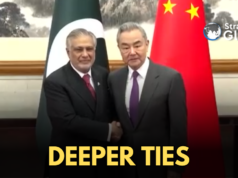Prem Mahadevan is a researcher and writer on terrorism and related issues. In this book on the Israeli intelligence agency Mossad titled Spies Among The Sands, Mahadevan argues that far too much of the publicly available literature on the agency’s workings focus on operational details.
These make for sexy reading, he points out, full of intrigue and derring do, how operations are planned and executed, who are the men and sometimes women who give their all for the cause. At a time when Israel is at war, such books lend the Mossad a larger-than-life image but Mahadevan believes in the process, a lot else is missed.
Like any other Israeli intelligence agency, Mossad has had its share of successes and failures, but the latter details while available if you know where to look for them, don’t often become public. Now and then an odd bit of news about Israelis being caught with fake passports in some foreign country makes it to the media and then vanishes.
Mossad’s failures are helped by a collaborative international (largely Western) media. Collaborative because the West (Europe/US) have this need to atone for their collective guilt in looking the other way when the Nazis sent thousands of Jews to the gas chambers in World War II.
Then, Israel is an ally in a largely Muslim dominated region rife with monarchs and sultans, military dictators and presidents for life.
Back to Mossad. Mahadevan points out that too much attention is given to Mossad when there are other agencies like Shabat (or Shin Bet) that are focused internally. But since Israel is so small in size (less than 21,000 sq. km), things overlap.
So while Mossad’s focus is external, the enemy is virtually at Israel’s doorstep, as Hamas demonstrated in October last year. The army has its communications intelligence wing and the foreign ministry has its own internal analysis of key developments that go to the political leadership.
Tune in for more in this conversation with Prem Mahadevan, researcher and writer on terrorism issues.
Thirty eight years in journalism, widely travelled, history buff with a preference for Old Monk Rum. Current interest/focus spans China, Technology and Trade. Recent reads: Steven Colls Directorate S and Alexander Frater's Chasing the Monsoon. Netflix/Prime video junkie. Loves animal videos on Facebook. Reluctant tweeter.




